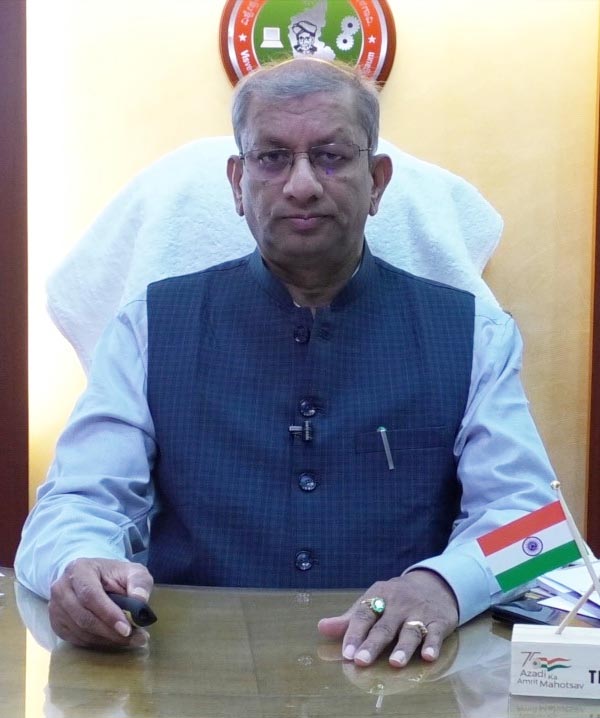Hon’ble Vice Chancellor Dr. Vidyashankar. S

Dr. S. Vidyashankar
Vice Chancellor
The new millennium is
witnessing unprecedented challenges and opportunities in
higher education. Engineering Education plays a pivotal
role in Human Resource Development of any country. In the
recent times, the educational sector has gone through a
major transformation influenced by the global
technological changes viz. shifting to Outcome Based
Education, enhancement of
Industry-Institute-Interactions, digital transformation,
providing affordable quality education etc. This is
paving a way for students to pursue their higher studies
and enhancedemployment opportunities. Premier
institutions across the globe are receiving an impetus
towards imbibing research culture into their curriculum.
In tune with the changes, NEP-2020 envisions an
India-Centered Education System that contributes directly
to transforming our nation sustainably, into an equitable
and vibrant knowledge society by providing high quality
education to all.
Academic and Research activities
of the university i.e. choice based credit system,
grading system includingcontinuous / comprehensive
evaluation and holistic development of students will
continue. The existing digital learning platforms and
ongoing ICT-based educational initiatives would be
optimized and expanded to meet the current and future
challenges.
Adapting experiential learning initiatives that includes Collaborative Learning, Project Based Learning, Problem Based Learning, Web-Based Learning, Game-Based Learning, Mobile Learning, Learning in Virtual World and Puzzle Based Learning is helping the students in better knowledge and skill development. Special focus on mapping academics with 21st century skills for engineers, Education 4.0, Sustainability Goals will be enhanced further. The curriculum framework will meet theneeds of exponential technologies including Artificial Intelligence, Machine Learning, Robotics, Automation, Data Science, Supply Chain Management, Mechatronics, Wearable Electronics, Augmented and Virtual reality, Photonics, Quantum Computing and Additive Manufacturing. A comprehensive holistic arts education as per NEPis also expected to develop all capacities of human beings – intellectual, aesthetic, social, physical, emotional, and moral – in an integrated manner. The University will focus on interdisciplinary and multidisciplinary research and establish new Centers of Excellence in thematic areas of research by identifying thrust areas of Govt.,and Industry which helps in undertaking need-based research for Incubation, Start-ups, Commercialization of IPs, Publications, Prototypes and Patents. The engineers continue to solve societal problems on energy, agriculture, water, climate, habitat, health and related areas by using above technologies.
Lifelong learning through new pedagogy methods, faculty development, adoption of new technologies, collaborative work will be undertaken. The new schemes of Govt. like Startup India, Digital India, Make in India and such others are indicators to move from job seeking to job providing scenario. Faculty and students of the institutions under the umbrella of VTU will be encouraged to participate and develop new products, new processes and systems to enhance visibility of VTU in international fore and thus, improving economic growth and prosperity of the country.
The studentfraternitywill be made to pursue their passion, develop innovative skills, set proper goals and execute with time lines. They will also be learning how to handle failures and work for societal needs with environmental consciousness through various innovative mechanism. All the stakeholders of technical education will continuously involve to keep their knowledge on par with current science, technology and management trends.
Finally, I urge all the stakeholders of education to help VTU in improving quality of education and research and obtaining better accreditation / ranking at national / international levels. Thus, National development to make self-reliant India.




